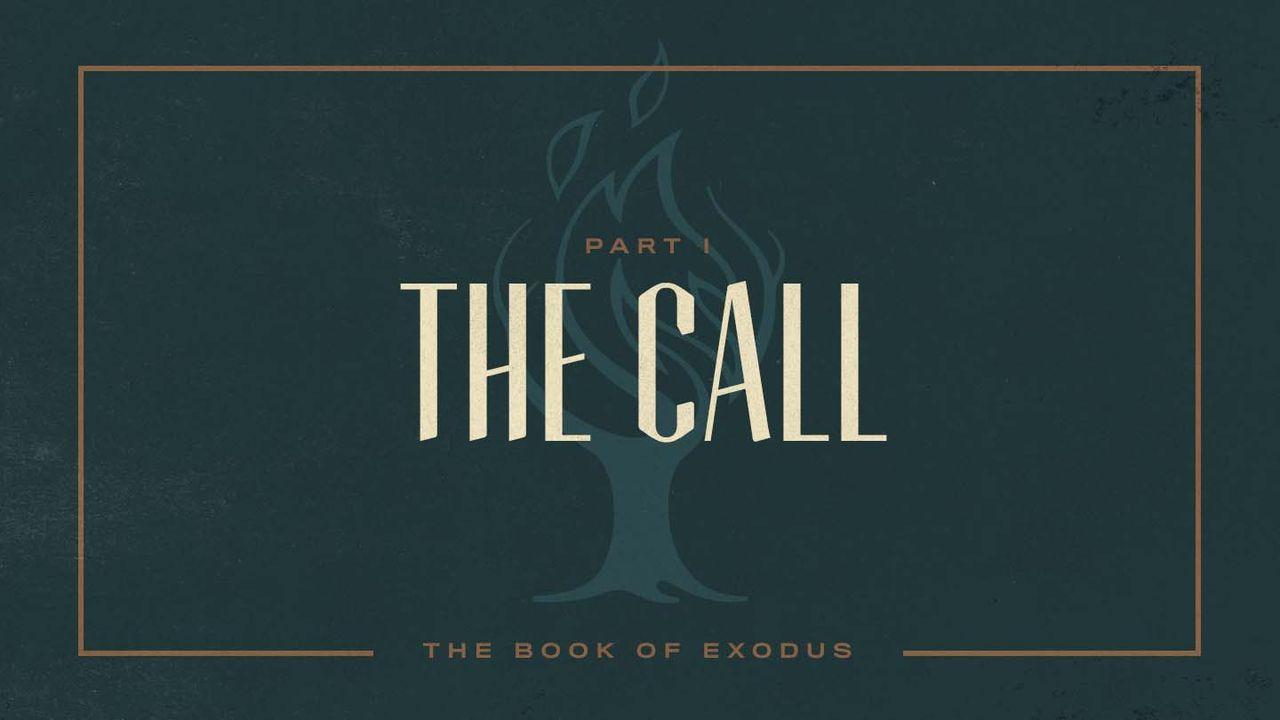Leesplan inligting
Exodus: The CallVoorbeeld

# His Part, Our Part
### By Pastor Dan Hickling
> “And the Lord said to Aaron, ‘Go into the wilderness to meet Moses.’ So he went and met him on the mountain of God, and kissed him. So Moses told Aaron all the words of the Lord who had sent him, and all the signs which He had commanded him. Then Moses and Aaron went and gathered together all the elders of the children of Israel. And Aaron spoke all the words which the Lord had spoken to Moses. Then he did the signs in the sight of the people. So the people believed; and when they heard that the Lord had visited the children of Israel and that He had looked on their affliction, then they bowed their heads and worshiped.” —Exodus 4:27–31 (NKJV)
This portion of Exodus serves as a transitional bridge leading to Moses and Aaron arriving in Egypt, but it also gives us a few important insights into the way God works.
First, we can’t help but notice that God is the one who speaks to Aaron and tells him to go meet Moses in the wilderness. He doesn’t give Aaron any more details beyond that. Now, we already know from this chapter (v. 14) that God told Moses that Aaron would accompany him to Egypt and assist him in his mission, but it’s here we see God working on Aaron’s side of the equation. The important point is this: When God is working to put something together, He works on both ends of the equation. God prepares the hearts individually so there’s no confusion or conflict that He’s doing a work.
Second, God leaves it for Moses to explain everything to Aaron. This might appear to be a trivial detail at first, but think the implications of this through. The Lord could have easily told Aaron all of this, but He didn’t; He wanted Moses to share what had happened with his brother. It was good for Moses to voice his divine commission to someone. This reveals another aspect of God’s ways to us. Although He does work on both ends of an equation, He doesn’t do everything for us. He leaves certain details undone so we can do them. And in doing them, we become active participants instead of passive observers of His work.
Finally, we see Moses and Aaron sharing the news of what God had called them to do with the elders of Israel and the rest of the people of Israel. In other words, they went public! There was no turning back at this point; the option of living a life of quiet obscurity in the wilderness was now gone. They would either achieve a great feat or infamously fail. But as they stepped forward to share what God had promised to do through them, the Lord authenticated their words by working miraculous signs through them. But notice the order: They stepped out in faith, they did what they could do, and then the Lord did what only He could do. This is another hallmark of God’s ways. When we’re faithful to what we can do, He meets that expression of faith by then doing what only He can do.
When it comes to the way God works when He calls us to something, we see that He moves in the hearts of others who are also a part of the equation. We see that He leaves certain things for us to do so we can actively participate in what He’s doing. And we see that when we do what we can do, He does what only He can do. Being aware of this helps us to understand His part and our part in the wonderful works that He has prepared for us.
Pause: What are three ways in which God works?
Practice: What work has the Lord called you to? What part is His and what part is yours? Even if journaling is not your thing, spend some time today writing out this call on your life, how God has led you to it, and some Scriptures to remind you of His faithfulness and promises!
Pray: Lord, thank You for calling me into active participation with You. Please help me to understand the balance of when You are calling me to wait on You to act and when You are calling me to act. Amen.
Skrif
Aangaande hierdie leesplan

In part one of this seven-part study through the Book of Exodus, we'll explore Exodus 1–6:5.
Verwante Leesplanne

’n Oproep tot Dienende Leierskap

Wat Jesus Gesê Het Oor Die Prys Van Dissipelskap

Moederskap Vol Genade - 43 Dae van Bemoediging vir Ma's

Tydelik

Wat Jesus gesê het oor Homself as die Seun van God
Wat Jesus Gesê Het Oor God Die Heilige Gees

Wat Jesus Gesê Het Oor Gebed

Waarom antwoord God nie my gebed nie?

Die Bron van jou blydskap
